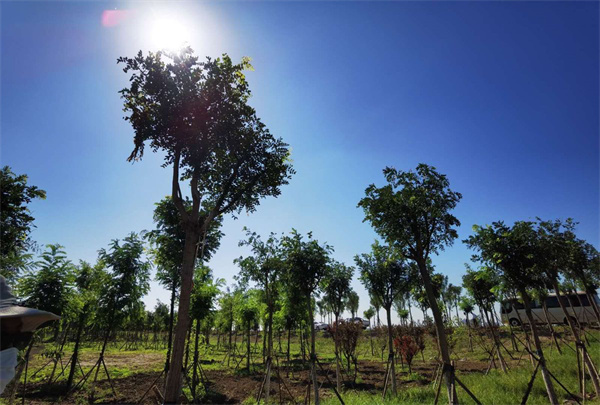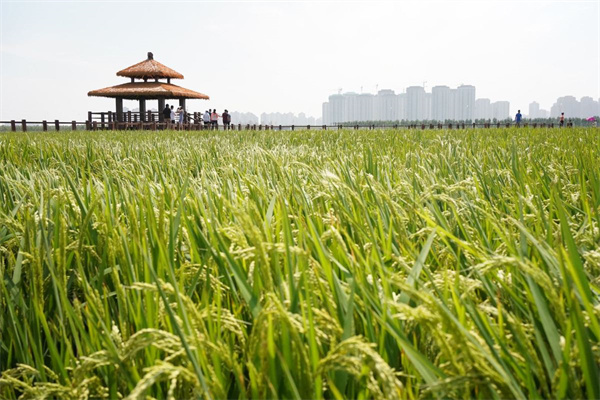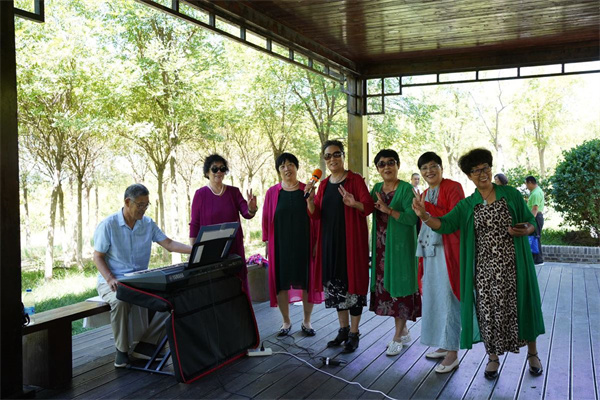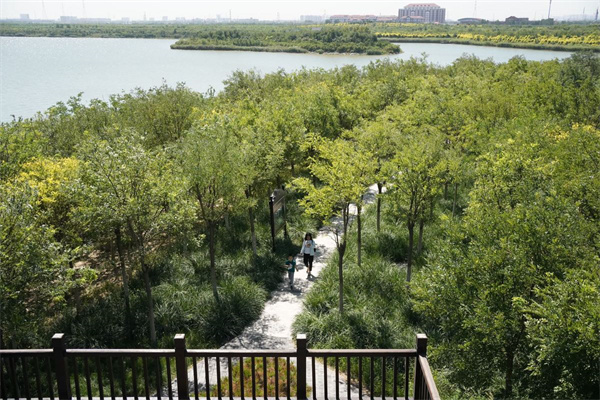
Newly planted trees in an area of Ninghe district, a key spot near the ancient coastal shoreline. After five years, the area will become part of the Green Ecological Barrier. [Photo by Dai Yuanyuan/chinadaily.com.cn]
A new picture-worthy venue, the Tianjin Green Ecological Barrier, has already become a popular destination for tourists in North China.
With rice fields, lakes, grasslands and forests covering 736 square kilometers, it's the top ecological protection campaign in the city in the past two years.
A vast area of the ecological barrier is located near the ancient coastal shore, one of the three existing in the world. Some areas have been renovated and turned into parks incorporating design elements of ancient shorelines.
Some areas, including the Qilihai wetland area, have seen the removal of industrial sites and illegal housing to become natural preservation zones.
New trees have been planted in recent years to protect the shoreline ecology.
Some park areas, such as Dongli Lake Park, have been designated to become part of the Green Ecological Barrier and are seeing more visitors.

People work in newly renovated grassland in the Green Ecological Barrier. [Photo by Dai Yuanyuan/chinadaily.com.cn]

Grassland in Tianjin's Jinnan district has become a magnet for tourists. [Photo by Yao Xu/ chinadaily.com.cn]

Residents pose for photos and sing at a park near the Green Ecological Barrier. [Photo by Yao Xu/chinadaily.com.cn]

Dongli Lake Park has been designated to become part of the Green Ecological Barrier. [Photo by Yao Xu/chinadaily.com.cn]

Xiaozhan Rice, a century-old brand in China, has thrived in Tianjin. [Photo by Yao Xu/chinadaily.com.cn]





